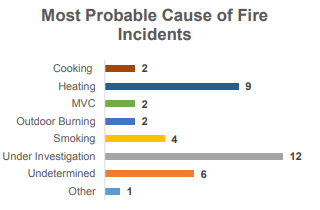More than 4o fatal fires in South Carolina have killed 51 people, with a majority of those deaths inside a family home. The state does not have any kind of mandate that requires residential fire sprinkler systems, and fire officials say fire fatalities will only continue if there is no change.
“Overtime you’ve seen sprinkler systems in commercial buildings, apartment buildings, and we’re naturally progressing to single-family dwellings. But there’s not a mandate in South Carolina,” explains Kyle Minick, executive director for South Carolina State Firefighters’ Association.
State laws don’t require residential fire sprinkler systems, but there are some incentives to encourage families to install them.
“Some insurance agencies offer incentives. I know mine did. At the time when I had a residential structure, it was a new construction, so I got a reduction because of that life-saving event,” added Minick.
Homeowners can also write off 25% of expenses related to the system on their property and income taxes. It costs about $2 a square foot to install one in your home, but firefighters say it’s a small price to pay for your safety.
Minick said, “From the time you detect a fire, to the time you notify the fire department, to the time the fire department is notified to the time we arrive, each minute and second the fire is growing in size and intensity.”

Maryland and California both require residential sprinkler systems in new one and two-family homes. Other states like Florida and Tennessee allow local jurisdictions to adopt their own sprinkler requirements.
Of the 42 fatal fires reported in South Carolina, 12 remain under investigation, nine were caused by heating elements, six were undetermined and four were caused by smoking. This chart to the right shows a cause for the other fires.
In the Grand Strand and Pee Dee, fatal fires have been reported in:
Dillon – 4
Williamsburg – 1
Marion – 2
Florence – 6
Fire officials with the state say sprinkler systems inside homes could save lives and help prevent, or at least slow, the damage to a home before firefighters arrive on scene.










